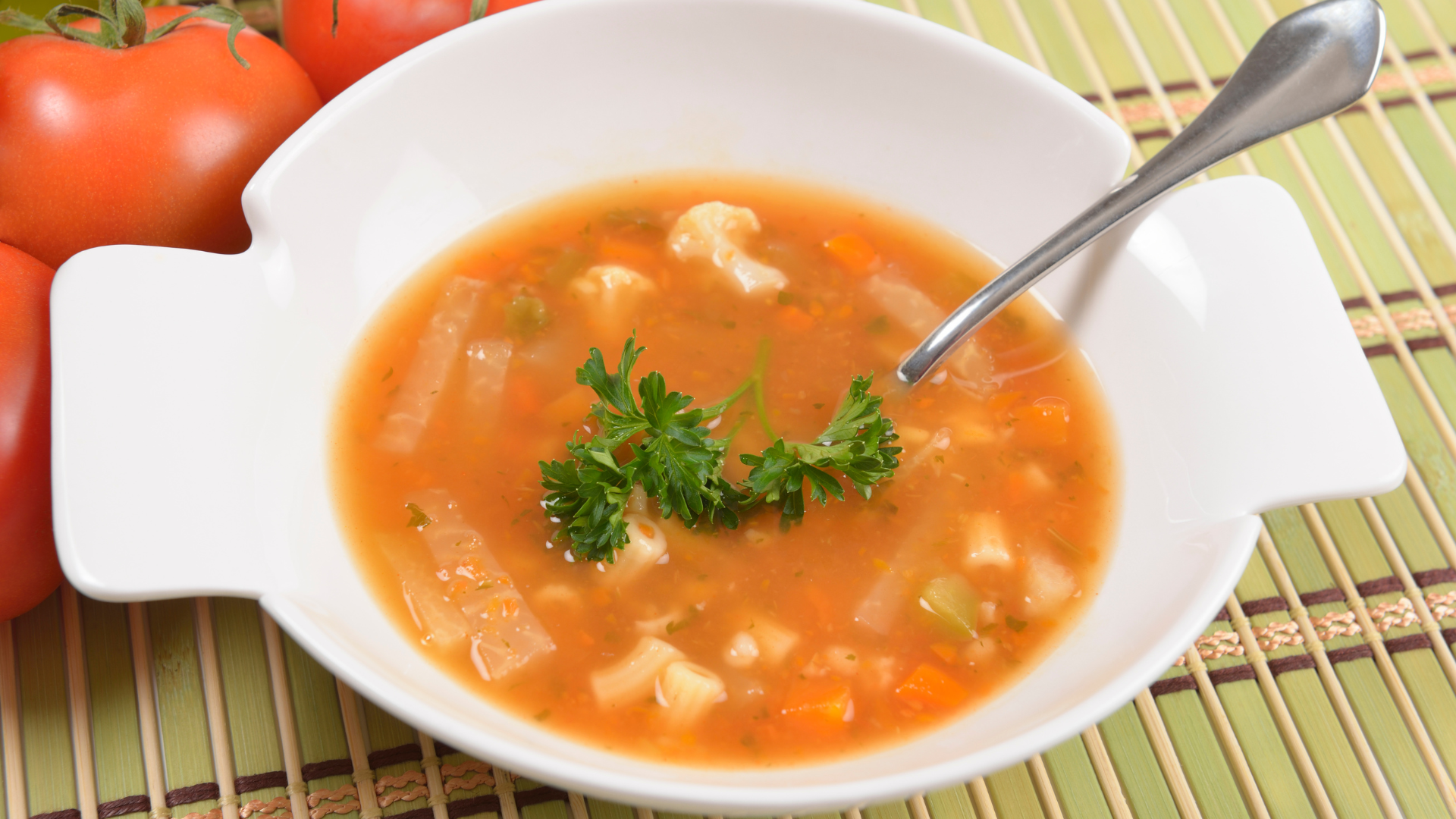
A soup made with beetroots, radishes, and spinach can be a nutritious and flavorful addition to your diet. Here are some potential benefits of incorporating these vegetables into a soup:
- Nutrient-Rich: Beetroots are rich in vitamins and minerals, including folate, manganese, potassium, and vitamin C. Radishes provide fiber, vitamin C, and various antioxidants. Spinach is a good source of iron, calcium, vitamins A and K, and folate. Combining these vegetables in a soup creates a nutrient-dense meal.
- Low in Calories: Soups, especially those based on vegetables, are often low in calories while being filling. This can be beneficial for weight management as it allows you to consume a satisfying meal with fewer calories.
- Dietary Fiber: Beetroots, radishes, and spinach all contribute to the fiber content of the soup. Dietary fiber is important for digestive health, promoting regular bowel movements, and contributing to a feeling of fullness, which may aid in weight management.
- Supports Detoxification: Beetroots contain compounds that may support liver function and detoxification processes. Including beetroots in your soup can potentially aid the body in eliminating toxins.
- Heart Health: Beetroots contain nitrates, which may help lower blood pressure and improve cardiovascular health. Radishes contribute potassium, which is also beneficial for heart health.
- Antioxidant Properties: Radishes and spinach are rich in antioxidants, which help neutralize harmful free radicals in the body. Antioxidants play a role in reducing oxidative stress and inflammation.
- Blood Sugar Regulation: Some studies suggest that beetroots may have a positive impact on blood sugar levels. Including beetroots in your soup may contribute to better blood sugar regulation.
- Vitamins and Minerals: The soup provides a variety of vitamins and minerals essential for overall health. Spinach, for example, is an excellent source of iron, important for blood health, while radishes contribute to vitamin C, which supports the immune system.
- Hydration: Soups contribute to your overall fluid intake, helping to keep you hydrated. Proper hydration is important for various bodily functions, including digestion and circulation.
When preparing your soup, consider using a variety of herbs and spices to enhance flavor without adding excessive salt or unhealthy ingredients. Additionally, you can customize the soup with additional vegetables, whole grains, or lean proteins to make it a well-balanced and satisfying meal. As with any dietary changes, it's advisable to consult with a healthcare professional or a nutritionist, especially if you have specific health concerns or dietary restrictions.


